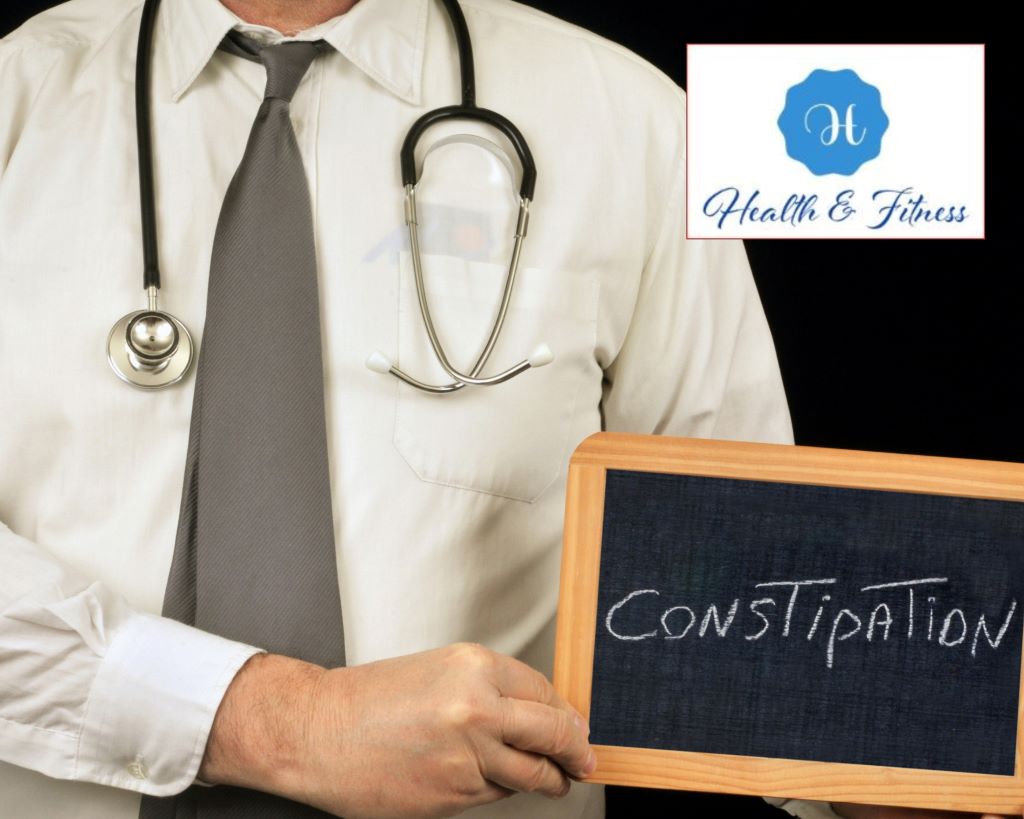Essential Tips for Managing Chronic Constipation and Improving Your Quality of Life
Unlock essential tips for effectively managing chronic constipation and enhancing overall quality of life. Learn about lifestyle changes, dietary adjustments, and natural remedies to find relief and regain control over your digestive health. Embrace a more comfortable and fulfilling life with expert guidance. Chronic constipation can be a frustrating and uncomfortable condition to live with. It can interfere with daily activities and reduce the quality of life. If you suffer from chronic constipation, you’re not alone. It’s estimated that up to 20% of adults experience chronic constipation. Fortunately, there are many strategies you can use to manage and improve your symptoms. We’ll offer the top 8 chronic constipation living tips in this blog post. Research backs these tips and can help you find relief and enjoy a better quality of life.
Table of context
An overview
Causes of Chronic
Symptoms of Chronic
The Best 8 ways
An overview of the challenges of living with chronic constipation
Can frustrate and make you uncomfortable. It can lead to bloating, abdominal pain, and even hemorrhoids. People with chronic constipation may feel embarrassed and avoid social activities or travel because of their symptoms. It can also impact their work and daily activities, making concentrating or completing tasks difficult.
Importance of lifestyle modifications and self-care
Even though there are medicines for long-term constipation, lifestyle modifications and self-care practices can also effectively manage symptoms. These include dietary changes, exercise, hydration, and stress management techniques.
Understand the Causes of Chronic Constipation

Causes of Chronic Constipation can have many reasons, including:
1- Poor diet
A diet low in fiber and high in processed foods, dairy, and meat can contribute to chronic constipation.
2- Dehydration
You may struggle to produce hard, dry stools if you don’t get enough fluids.
3- Lack of physical activity
A sedentary lifestyle can slow the digestive system and contribute to constipation.
4- Certain medications
Some medications, such as painkillers and antidepressants, can cause constipation.
5- Medical conditions
Irritable bowel syndrome is one of many medical disorders that can cause chronic constipation (IBS), hypothyroidism, or neurological disorders.
Symptoms of Chronic Constipation

The symptoms of chronic constipation can vary from person to person but may include the following:
- Infrequent bowel movements (less than three per week)
- Straining to pass stools
- Hard, lumpy stools
- The feeling of incomplete evacuation
- Abdominal pain or bloating
- Rectal bleeding or fissures
- Nausea or loss of appetite
By understanding the causes and symptoms of chronic constipation, you can identify the factors contributing to your symptoms and take steps to manage them.
The Best 8 Ways to Living Better with Constipation
Living with chronic constipation can be challenging, but following these tips can improve your quality of life and manage your symptoms effectively. Consult your healthcare provider before changing your diet, lifestyle, or medication regimen. With patience, perseverance, and the right tools, you can overcome chronic constipation and live healthier and happier lives.
1-Increase Water and Fluid Intake
Increasing water and fluid intake is one of the most effective ways to ease chronic constipation.
Dehydration is a common cause of constipation, and without enough water in your system,
your stool can become hard and difficult to pass. To avoid this, adults should drink at least eight glasses of water a day, or more, if they work out a lot or live in a popular place.
You can also increase your fluid intake by drinking herbal teas, fruit juices, and other hydrating beverages. Besides increasing your fluid intake, you can incorporate foods high in water content into your diet, such as watermelon, cucumbers, and berries. These foods not only help hydrate your body but also contain fiber that can aid in digestion and promote regular bowel movements. However, it’s important to note that increasing your fluid intake alone may not be enough to relieve chronic constipation. It’s important to address other potential causes of constipation, such as diet, lifestyle, and medication use.
2- Increase the Amount of Fiber in Your Nutrition
Fiber is an essential nutrient that helps to promote bowel movements and prevent constipation. Increasing your fiber intake can help to soften your stool and make it easier to pass. Here are some tips for adding more fiber to your diet:
1- Eat more fruits and vegetables
Fruits and vegetables are excellent sources of fiber.
Eat at least five servings of fruits and vegetables each day.
2- Choose whole grains
Whole grains like brown rice, whole wheat bread, and quinoa are high in fiber.
Look for products that contain at least three grams of fiber per serving.
3- Incorporate legumes
Legumes like lentils, chickpeas, and beans are excellent sources of fiber.
Try adding them to soups, salads, or as a side dish.
4- Snack of high-fiber foods
Nuts, seeds, and dried fruits are all high in fiber and make for successful snacks.
Increasing your fiber intake gradually is important to prevent discomfort or bloating.
Consume 25-30 grams of fiber daily to maintain a healthy digestive function.
3-Exercise Regularly
A sedentary lifestyle often causes chronic constipation.
Exercise can help increase bowel motility, improve digestion, and promote regularity.
Here are some tips for incorporating exercise into your daily routine:
1- Start Slow
If you are new to exercise, accumulate your workouts’ intensity and duration.
2- Choose Low-affect Exercises
Activities such as walking, cycling, yoga, or swimming can be gentle on your body and still provide physical activity.
3- Schedule Regular Exercise
Make exercise a part of your daily routine. Aim for at least 30 minutes of physical activity per day.
4- Use Your Core Muscles
Exercises targeting your core muscles can help strengthen your abdominal muscles, improving bowel movements. Planks, sit-ups, and bridges, good examples.
5- Try Pelvic Floor Exercises
Weak pelvic muscles can lead to chronic constipation.
Pelvic floor exercises like Keels can help strengthen these muscles and improve bowel movements.
Regular exercise helps ease chronic constipation and has many other health benefits, including reducing stress, improving mood, and promoting overall physical fitness.
4-Use Laxatives and Medications as Directed
Laxatives or other drugs may help chronic constipation. Use these drugs as prescribed by your doctor. Osmotic, stimulant, and laxatives weight stool. Osmotic laxatives draw water into the intestines to soften faces, whereas stimulant laxatives promote bowel movements. Psyllium, a bulk-forming laxative, absorbs water in the colon to make feces bulkier and easier to pass. Laxative reliance might worsen constipation. Use these as prescribed by a doctor. Stool softeners, lubricants, and colonic motility medicines may help treat persistent constipation. Discussing laxatives or other drugs for persistent constipation with your doctor is crucial.
5-Practice Good Toilet Habits
Living with chronic constipation can frustrate you, but there are simple habits you can adopt to make bowel movements easier and more regular. Here are some tips to keep in mind:
1- Establish a Routine
It’s best to go to the toilet around the same time every day, ideally after eating.
This can help regulate your bowel movements and encourage your body to go when needed.
2- Don’t Ignore the Urge to Go
When you feel the urge to go, don’t wait. Holding it in can make your constipation worse and cause discomfort. Take the time to go when you need to.
3- Use the Correct Position
A more comfortable toilet seat can facilitate bowel motions.
Try elevating your feet with a stool or using a squatting position to help straighten your rectum
and allow for easier elimination.
4- Don’t Strain
Straining can cause damage to your anus and rectum and even lead to hemorrhoids. If you’re having difficulty going, try other tips on this list before straining.
5- Take Your Time
Rushing through bowel movements can also cause constipation. Take your time, relax, and let your body do what it needs to do. These toilet habits can make bowel motions easier and more regular,
improving your quality of life with chronic constipation.
6- Manage Stress and Anxiety
Living with chronic constipation can be stressful, and stress can worsen the symptoms of constipation.
This is because stress can cause changes in the way the digestive system works, making it more difficult for stool to move through the intestines. To help manage stress and anxiety, try the following:
1- Practice relaxation techniques
Deep breathing exercises, meditation, and yoga are all effective ways to reduce stress and promote relaxation.
2- Seek support
Talking to friends, family, or a therapist about your feelings and experiences can help to reduce stress and anxiety.
3- Make time for hobbies and activities you enjoy
Engaging in enjoyable activities can help to distract you from feelings of stress and anxiety and promote a sense of well-being. By managing stress and anxiety, you can not only improve your overall well-being but also help to improve your symptoms of chronic constipation.
7- Seek Support and Professional Help
Living with chronic constipation can be challenging, and seeking support and professional help when necessary is essential. Here are some suggestions:
1- Talk to your healthcare provider
See a healthcare provider if your symptoms persist despite lifestyle modifications and over-the-counter medications. They can evaluate your condition and provide treatment options, including prescription medications or referral to a specialist.
2- Join a support group
Joining a support group can provide you with a network of people who understand your struggles and can offer practical tips and emotional support.
3- Seek counselling
Chronic constipation can cause significant stress and anxiety. Seeking counselling from a mental health professional can help you manage these emotions and improve your overall well-being.
4- Involve your loved ones
Living with chronic constipation can affect your relationships with your loved ones. Involve them in your care, educate them about your condition, and ask for their support.
8- Try Natural Remedies

While medications and lifestyle changes are essential for managing chronic constipation, natural remedies can also be beneficial. Here are some natural remedies that you can try:
1- Herbal teas
Certain herbal teas, such as senna tea and ginger tea, can help to relieve constipation. Senna tea is a natural laxative that stimulates bowel movements, while ginger tea can soothe the digestive system and promote regularity.
2- Aloe vera
Aloe vera juice can help to relieve constipation by softening the stool and promoting bowel movements.
It also has anti-inflammatory properties that can soothe the digestive tract and reduce inflammation.
3- Magnesium
Magnesium supplements can help to relieve constipation by relaxing the muscles in the digestive tract and drawing water into the colon to soften the stool. Before taking magnesium tablets, consult your doctor because high doses can cause side effects.
4- Probiotics
Probiotics are beneficial bacteria that live in the gut and can help to improve digestion and promote bowel regularity. You can take probiotic supplements or consume probiotic-rich foods like yogurt, kefir, and sauerkraut.
5- Massage therapy
Abdominal massage can help to stimulate the digestive system and promote bowel movements.
You can try massaging your abdomen in a circular motion with your fingertips or seek the help of a licensed massage therapist. It is important to note that natural remedies may not work for everyone and may have potential side effects. It is essential to talk to your healthcare provider before trying any natural remedies for chronic constipation.
Conclusion
Living with chronic constipation can be challenging, but incorporating these tips into your daily routine can help improve your quality of life. By understanding the causes and symptoms of chronic constipation, increasing your water and fluid intake, adding more fiber to your diet, exercising regularly, using laxatives and medications as directed, practising good toilet habits, managing stress and anxiety, seeking support and professional help, trying natural remedies, and keeping a symptom diary, you can take control of your condition and feel better. Always talk to your healthcare provider before changing your diet or exercise routine and seek medical attention if your symptoms worsen or persist. With the right approach, you can live better with chronic constipation and enjoy a healthier life.

Adel Galal is a health and wellness writer with over 30 years of experience studying and writing about health, fitness, nutrition, and healthy living. He is the founder of NextFitLife.com, where he shares practical, evidence-based guidance to support long-term health at any age. Adel’s mission is simple:
to help people make smarter health choices that fit real life, at any age.



